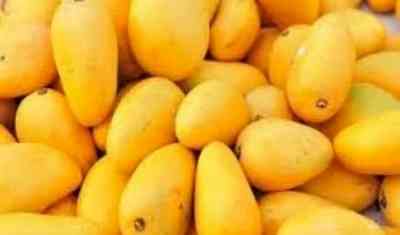Food regulator cautions traders not to use calcium carbide for fruit ripening
Keeping the use of banned calcium carbide in concern, the Food Safety and Standards Authority of India (FSSAI) has alerted fruit traders to strictly ensure compliance with the prohibition on calcium carbide for artificial ripening of fruits, particularly during the mango season.

New Delhi, May 19 (IANS) Keeping the use of banned calcium carbide in concern, the Food Safety and Standards Authority of India (FSSAI) has alerted fruit traders to strictly ensure compliance with the prohibition on calcium carbide for artificial ripening of fruits, particularly during the mango season.
In a statement, the FSSAI has also advised the Food Safety Departments of States and UTs to remain vigilant and take serious action and deal stringently against people indulging in such unlawful practices as per laws.
The national food regulator has permitted the use of ethylene gas as a safer alternative for fruit ripening.
"Ethylene gas can be used at concentrations up to 100 ppm, depending upon the crop, variety and maturity. Ethylene, a naturally occurring hormone in fruits, regulates the ripening process by initiating and controlling a series of chemical and biochemical activities," said the FSSAI.
Calcium carbide releases acetylene gas which contains harmful traces of arsenic and phosphorus.
These substances can cause serious health issues such as "dizziness, frequent thirst, irritation, weakness, difficulty in swallowing, vomiting and skin ulcers".
"There are chances that calcium carbide may come in direct contact with fruits during application and leave residues of arsenic and phosphorus on fruits," the food regulator said.
It further said that if any use of Calcium Carbide or any wrong practice of using ripening agents for the artificial ripening of fruits is noticed by the consumers, "the same may be brought to the notice of concerned State Commissioners of Food Safety for taking action against such violators".
--IANS
na/svn


 IANS
IANS 










